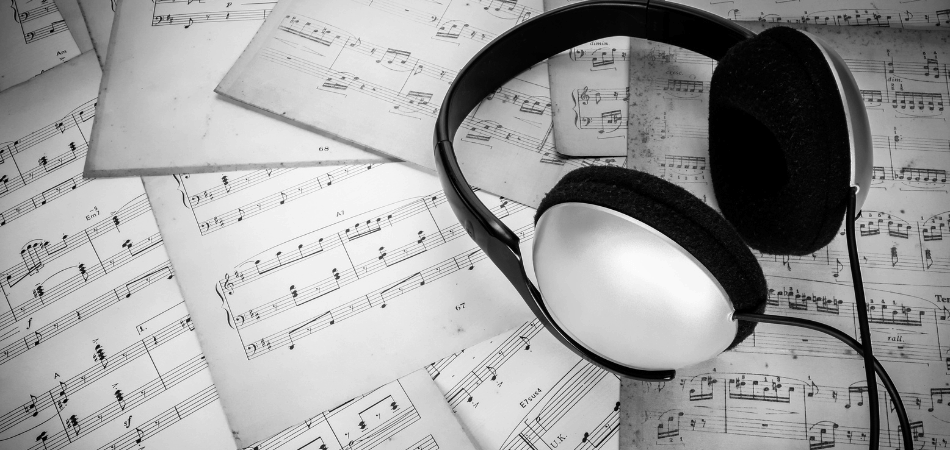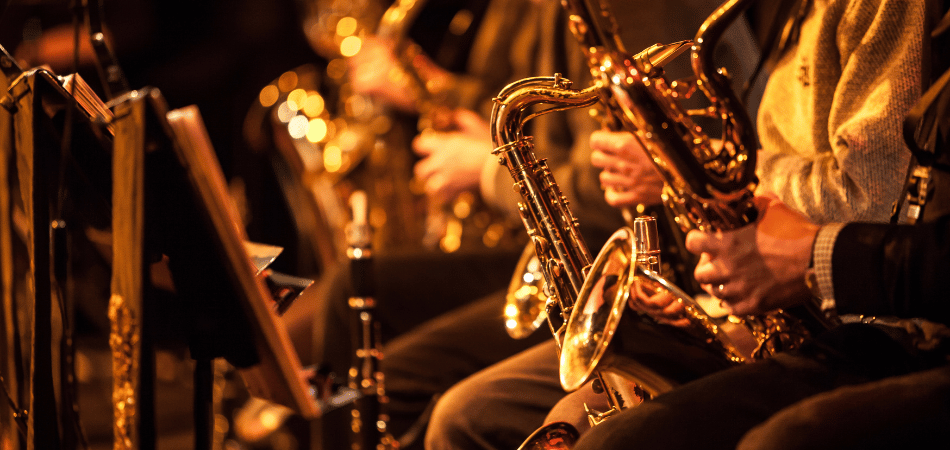Embarking on the journey of addiction treatment may seem conventional, but the path becomes distinctly harmonious when guided by the therapeutic notes of music. Music therapy transcends the boundaries of imagination, revealing a captivating realm where science converges with the soul.
Discover the impact of music therapy on addiction treatment and how this innovative approach offers a fresh and resonant perspective on the healing journey.
Call our admissions line 24 hours a day to get help.
What is music therapy?
Music therapy is a holistic and evidence-based approach that utilises music’s inherent healing qualities to address individuals’ physical, emotional, cognitive, and social needs. This therapeutic practice involves a trained music therapist who uses music interventions such as listening, creating, singing, and movement to achieve therapeutic goals.
Music therapy can be tailored to meet the specific needs of diverse populations, including children with developmental disorders, individuals with mental health challenges, and those facing addiction.
The power of music to evoke emotions, enhance communication, and stimulate various areas of the brain makes it a versatile tool for promoting overall well-being and facilitating the healing process. Whether in individual or group settings, music therapy provides a creative and non-verbal medium through which individuals can express themselves, build connections, and work towards improved physical and mental health.
The science behind music therapy
Exploring the intricate connection between music and the brain offers profound insights into the effectiveness of music therapy for addiction treatment. When delving into the science behind music therapy, it becomes evident that music directly impacts our neural pathways, influencing emotional regulation and cognitive processing.
Neuroscientific research has shown that listening to music can trigger the release of dopamine in the brain, a neurotransmitter associated with pleasure and reward. This dopamine release plays a crucial role in reinforcing positive behaviours and can help individuals struggling with addiction find healthier alternatives to substance use.
Moreover, music therapy has been found to stimulate various areas of the brain responsible for processing emotions and memories, leading to improved emotional regulation. Individuals can learn to identify and express their emotions safely and constructively by engaging with music, enhancing self-awareness and coping mechanisms.
Incorporating music therapy into addiction treatment programmes can provide a holistic approach that targets both the physical and emotional aspects of addiction recovery.
Call our admissions line 24 hours a day to get help.
Benefits of music therapy
Music therapy can significantly aid in emotional regulation by providing a safe space for you to explore and express your feelings through music. The melodies and rhythms can help you identify and process emotions that may be challenging to confront directly. Through this process, music therapy can assist in regulating your emotions, reducing stress, and promoting overall well-being.
Other benefits of music therapy are:
- Emotional expression: Music provides a non-verbal outlet for expressing emotions, which can be especially helpful for individuals who find it challenging to articulate their feelings.
- Stress reduction: Listening to or creating music can induce a relaxation response, helping to reduce stress and anxiety. This is crucial in addiction therapy, as stress often contributes to the cycle of substance abuse.
- Coping skills: Music therapy can assist individuals in developing healthy coping mechanisms. Engaging with music allows them to learn alternative ways of dealing with cravings, triggers, and other challenges associated with addiction.
- Enhanced confidence: Successfully participating in music activities, whether through playing an instrument or singing, can boost self-esteem and confidence. As individuals experience a sense of accomplishment, it can positively impact their self-worth.
- Improved communication: Music therapy encourages communication through non-verbal means, fostering improved communication skills. This can be especially beneficial for individuals who may struggle with traditional talk therapy or have difficulty expressing themselves verbally.
- Motivation for treatment: The enjoyable and rewarding nature of music therapy can motivate individuals to participate in their addiction treatment actively. It can serve as a positive and engaging aspect of their recovery journey.
- Neurological and psychological benefits: Music can stimulate various brain areas, promoting cognitive functioning and emotional processing. This can be particularly important in addiction therapy, where individuals may experience cognitive challenges due to substance use.
Moreover, music therapy plays a crucial role in cognitive restructuring by engaging your brain in creative and constructive ways. Listening to music, creating music, or analysing lyrics can stimulate cognitive processes, enhance memory, and improve problem-solving skills. This cognitive engagement can help shift negative thought patterns, enhance self-awareness, and foster a more positive mindset conducive to recovery.
Incorporating music therapy into your addiction treatment can provide a holistic approach to healing, addressing both emotional and cognitive aspects essential for sustainable recovery.
Music programmes in rehab
Music therapy is a creative and expressive form of therapy that can be integrated into addiction treatment programmes and involves the use of music and musical activities to address physical, emotional, cognitive, and social needs.
Here’s what music therapy may look like in addiction treatment:
When considering music preferences for therapeutic outcomes, remember that genre selection plays a crucial role in addiction recovery. Certain types of music can evoke emotions, memories, and provide comfort, ultimately aiding individuals in their journey towards healing.
Integrating music into aftercare services
Integrating music into addiction aftercare can amplify the probability of a sustained recovery for those overcoming addiction. Tailored music playlists designed for recovery become potent aids in stress management, emotional regulation, and relaxation during the post-rehabilitation period. Community-building group sessions, where individuals share the impact of music on their sobriety journey, foster a sense of belonging and emphasise the significance of ongoing support networks.
Additionally, weaving music therapy activities into aftercare programmes empowers individuals to express themselves creatively, delve into emotions within a secure space, and fortify their coping mechanisms.
Call our admissions line 24 hours a day to get help.
How effective is music therapy?
Music therapy effectiveness can vary depending on the specific goals, the individual’s condition, and how well the therapy is tailored to their needs. Overall, music therapy can be effective in various settings and for various individuals.
Here’s how music therapy can contribute to the effectiveness of addiction treatment:
- Emotional expression and regulation: Addiction often involves complex emotional issues. Music therapy provides individuals in recovery with a creative outlet to express and regulate their emotions. It can be particularly beneficial for those struggling with emotional challenges such as anxiety, depression, or trauma, which are common co-occurring issues alongside addiction.
- Stress reduction: Music has the power to reduce stress and anxiety levels. In addiction treatment, where stress management is crucial, music therapy can be used to help individuals relax and develop healthier coping mechanisms, reducing the likelihood of relapse.
- Cognitive restructuring: Music therapy can stimulate cognitive processes, aiding in developing cognitive skills such as memory, attention, and problem-solving. This is essential for individuals in recovery who may experience cognitive impairments due to substance use.
- Self-reflection and self-awareness: By exploring lyrics, melodies, and rhythms, individuals in addiction treatment can engage in self-reflection and increase self-awareness. This process can be instrumental in identifying triggers, understanding the root causes of addiction, and developing a more profound sense of self.
- Community and social support: Music therapy can be conducted in group settings, fostering a sense of community and social connection among individuals in recovery. Building positive social relationships is crucial for a successful recovery journey, and music therapy provides a shared and enjoyable activity that promotes bonding.
- Alternative to substance use: Engaging in music-making or listening to music can serve as a healthy and enjoyable alternative to substance use. It provides a positive and rewarding experience that individuals can turn to when facing cravings or challenging moments in their recovery.
- Enhanced treatment engagement: Music therapy’s enjoyable and non-threatening nature may enhance treatment engagement. It can serve as a motivating factor, making individuals more likely to participate actively in their addiction treatment programmes.
- Mindfulness and relaxation: Music therapy can incorporate mindfulness and relaxation techniques. Learning to be present in the moment through music can be a valuable skill for individuals in recovery, helping them manage stress and avoid relapse triggers.
While music therapy alone may not be a comprehensive solution for addiction, it can significantly complement traditional therapeutic approaches, offering a holistic and multifaceted treatment experience for individuals seeking recovery from substance use disorders. The integration of music therapy into addiction treatment programmes can contribute to improved emotional well-being, enhanced coping skills, and a higher likelihood of sustained recovery.
The next step
The integration of music programmes within rehab facilities allows individuals to harness the profound and transformative influence of music on their healing journey.
If you believe that music could enhance your personal voyage to sobriety, consider exploring its therapeutic potential to overcome your addiction.
Call our admissions line 24 hours a day to get help.







